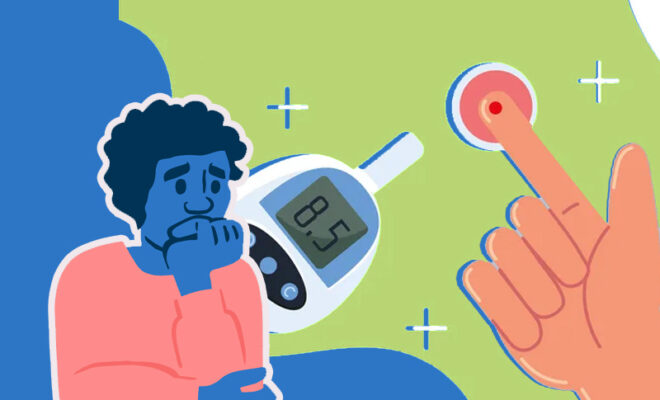Diabetes Increase Risk of Depression: Experts

Last updated on September 18th, 2023 at 12:49 pm
Diabetes is a lifestyle disease that slowly and steadily takes a toll on health if not taken care of, it affects physical and emotional wellbeing.
Did you know that besides impacting your health, diabetes can take a toll on one’s lifestyle and affects the way they think, feel and behave? Unhealthy diets like too much sugar foods, fat and oil can cause diabetes and so can an inactive or sedentary lifestyle.
One needs to watch what they eat, exercise and take precautions or preventative measures to keep diabetes away. But then, diabetes is also hereditary. Abnormally high blood sugar levels might be in the family history and lineage.
Dr Arun Singh, Director Endocrinology & Diabetology, at Metro Hospital Faridabad, described diabetes as a chronic metabolic disorder. It is characterized by high blood sugar levels. And this can impact behavior and mental wellbeing. He explained that fluctuations in blood sugar levels can cause a range of behavioral changes.
Prevalent in Type 2 Diabetes
Keeping diabetes, especially type 2, under control is challenging. It means diet and lifestyle changes and taking medication. Some patients find this tiring and distressing when they don’t get the results they want. They cannot go back to living their normal lives.
Dr Rajiv Dang, Medical Director & HOD Internal Medicine at Max Hospital, said behavioral changes can happen due to stress of the disease, the patient has to take tablets and injections (insulin shots) etc., for the rest of their life. He believes it’s a stress for many because there’s a lot of restrictions on their diet.
Dr Singh agrees that managing diabetes can be stressful. He explained that unstable blood sugar levels can trigger mood swings. And when blood sugar is too low, individuals can get irritable, anxious and become aggressive. Moreover, high sugar can also lead to depression, lethargy and emotional instability.
Also Read:- Who Did Implant The Concept of Oats Over Besan In India?
Patients with type 2 diabetes may experience changes in appetite, restlessness, low energy, and pessimism, etc. These are highly variable as everyone is affected differently. Research shows that patients using insulin are at higher risk of depression, but there’s no strong evidence suggesting that indeed insulin causes depression.
Handling Diabetes
Mood swings are common in diabetes as its related to fluctuations in blood sugar levels. To handle this lifestyle disease, patients need to be very careful about their diet. They can talk to friends or a therapist to share their feelings, and thoughts. People with diabetes should also consult with their doctors.
Experts say behavioral changes in diabetes underscore the importance of holistic care, addressing both physical and emotional aspects of the disease to improve the overall wellbeing.



